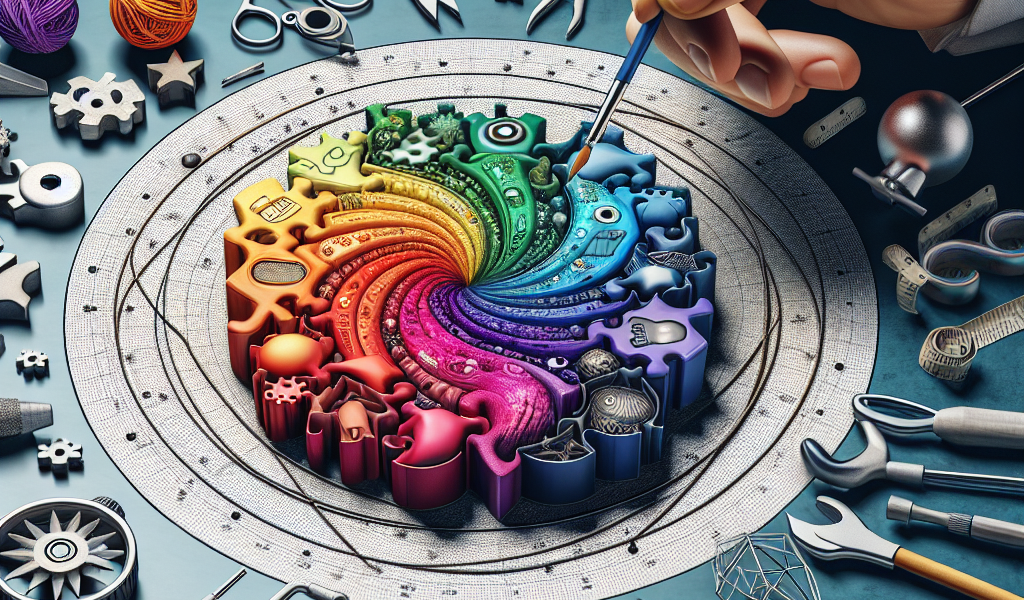How Does Cognitive Rehabilitation Therapy Help Individuals With Cognitive Impairments?
Imagine standing at the threshold of a mysterious labyrinth; your heart is pulsing as you prepare to traverse its winding paths. This is akin to venturing within our minds, especially when navigation becomes a challenge due to cognitive impairments. For those living with such conditions, cognitive rehabilitation therapy (CRT) emerges as a beacon of hope. More than a mere therapy, CRT serves as their compass, guiding them through the labyrinth of cognitive challenges. This article shares an enlightening exploration, leading you towards a deeper understanding of how Cognitive Rehabilitation Therapy aids individuals afflicted by cognitive impairments.

Understanding Cognitive Impairments
Definition and types of cognitive impairments
Cognitive impairments are disruptions in the cognitive process that result in difficulties with perception, memory, attention, and decision-making. There are varying types of cognitive impairments, manifesting from mild to severe symptoms. These types include memory disorders that affect one’s ability to recall events or information, attention disorders that hinder focus and concentration, and executive function disorders which impede the capacity to perform complex tasks like planning, organizing, and reasoning.
Possible causes of cognitive impairments
Cognitive impairments can be brought on by a gamut of causes. These can include neurological conditions like stroke, Parkinson’s disease or traumatic brain injuries. Other potential causes may be Alzheimer’s disease and other forms of dementia, mental health conditions such as anxiety and depression, genetic disorders such as Down syndrome or nutritional deficiencies. It’s also worth noting that these impairments can come about due to substance abuse or even as side-effects of certain medications.
Impact of cognitive impairments on daily life
Cognitive impairments can markedly limit one’s ability to carry out routine tasks and engage in social interactions. Memory problems can result in misplacing items, forgetting appointments, or struggling with recalling names. Attention deficits can make complex tasks daunting and time-consuming. Daily life can be significantly demanding and potentially distressing for individuals with cognitive impairments, as it can have profound effects on their independence, self-esteem, and quality of life.
Overview of Cognitive Rehabilitation Therapy
What is cognitive rehabilitation therapy?
Cognitive rehabilitation therapy (CRT) is a therapeutic approach developed to help people manage issues related to cognitive functioning. CRT relies on the brain’s neuroplasticity – its ability to change and adapt – to reestablish cognitive abilities or compensate for cognitive deficits. It involves sessions aimed at teaching strategies to improve cognitive functioning and manage daily tasks more effectively.
Different techniques used in cognitive rehabilitation
Various techniques are employed in cognitive rehabilitation therapy, depending on the individual’s condition and needs. These techniques can include memory retraining exercises, attention and concentration exercises, activities to improve problem-solving skills, and language and communication exercises. Often these techniques involve real-life tasks to make the treatment functional and meaningful.
The role of therapists in cognitive rehabilitation
Therapists play a pivotal role in cognitive rehabilitation. From evaluating the nature and extent of the cognitive impairment, setting appropriate goals, and implementing a personalized treatment plan, the therapists guide individuals throughout the therapy process. They also modify the treatment plans to fit changing needs, offer moral support, manage setbacks, and celebrate achievements with the individuals.
Process of Cognitive Rehabilitation Therapy
Initial assessment phase
The first phase of CRT involves an initial assessment to identify the individual’s cognitive strengths and weaknesses. The therapist uses a range of clinical assessments and observational methods to gauge the individual’s cognitive abilities in a comprehensive manner.
Goal setting and treatment planning
Following the initial assessment, the therapist engages with the individual to set personalised and functional therapy goals. The treatment plan is designed based on these goals, with exercises and tasks that align with the individual’s lifestyle and targets their specific difficulties.
Implementation of the treatment plan
Upon finalising the treatment plan, the therapist implements it with the individual. The tasks and exercises included in the plan are explained and demonstrated, and the individual begins to practice them. The therapist provides guidance and support throughout this phase.
Evaluation and modification of the treatment plan
Continuous evaluation is essential for the success of CRT. The therapist reviews the individual’s progress periodically in order to gauge the effectiveness of the treatment plan. Based on this evaluation, the treatment plan may be modified to ensure it remains effective and relevant.

Benefits of Cognitive Rehabilitation Therapy
Improved memory
CRT can enhance an individual’s memory skills. Therapies designed to improve memory might involve teaching the individual to use mnemonic devices or other memory aids, helping them adopt structured routines, or facilitating them to practice reminiscing on past events.
Enhanced attention span
CRT can also improve concentration and attention span. Through targeted attention exercises and techniques, the individual can learn to focus better, thereby becoming more efficient at handling tasks and more engaged during conversations.
Better problem-solving skills
Cognitive rehabilitation therapy can enhance problem-solving skills too. By teaching techniques and strategies to enable systematic approaches to problems, therapists can help individuals become more proficient at identifying and overcoming challenges in their daily lives.
Improved orientation skills
One significant area of impact of CRT is improved orientation skills. This encompasses temporal, spatial, and person orientation that helps individuals to have a better understanding of time, place, and people.
Applications of Cognitive Rehabilitation Therapy
Brain injury recovery
CRT is often employed in the recovery process of individuals with brain injuries. It aids in the restoration of cognitive abilities that may have been affected due to the injury, facilitating the return to everyday activities in a smoother manner.
Dementia and Alzheimer’s disease
Cognitive rehabilitation is a valuable tool in managing the effects of diseases such as dementia and Alzheimer’s. CRT can help maintain cognitive function for as long as possible, train individuals to use their unaffected abilities, and teach them compensatory strategies for coping with cognitive decline.
Stroke recovery
Following a stroke, individuals often face significant cognitive challenges. CRT can help in relearning lost abilities and developing cope-up strategies, therefore playing a crucial role in stroke recovery.
Children with developmental disorders
CRT has demonstrated its benefits for children with developmental disorders such as autism, attention deficit hyperactivity disorder (ADHD), learning disabilities, and others. By teaching skills and strategies for managing their cognitive impairments, CRT supports these children towards a better functioning in their daily life.
Family’s role in Cognitive Rehabilitation Therapy
Supporting the individual at home
The family plays a key role in cognitive rehabilitation by offering emotional, psychological, and physical support at home. Through providing encouragement, motivation and reassurance, family members can help bolster the individual’s confidence and resilience.
Collaboration with the therapy team
Family involvement can greatly enhance the effectiveness of the therapy. Collaborating with the therapy team by regularly discussing progress, which involves understanding the goals and strategies of the therapy, and reinforcing these strategies at home, can significantly contribute to the success of CRT.
Understanding the therapy process and progress
The family’s understanding of the therapy process and progress is crucial for creating a supportive environment. By comprehending how CRT works, the extent of cognitive impairment, the goals of the therapy, and signs of progress, family members are better equipped to help the individual and manage their own expectations.
Cognitive Rehabilitation Modality: Individual vs Group Therapy
Benefits of individual therapy
Individual therapy offers personalized attention and tailored interventions. The individual benefits from focused sessions where the therapist addresses their specific programming based on their unique needs and abilities.
Benefits of group therapy
Group therapy allows for social interaction, fostering a sense of community and mutual support among individuals facing similar challenges. It encourages learning from others’ experiences and gaining insights into coping strategies, which could be beneficial for the overall therapeutic outcome.
Choosing the right modality
The choice between individual and group therapy depends on the individual’s personal needs, comfort levels, and the nature of their cognitive impairment. It’s important to discuss these considerations with the therapy team to decide on the most suitable therapy modality.
Challenges and Limitations of Cognitive Rehabilitation Therapy
Potential difficulties in the therapy process
Cognitive rehabilitation therapy may be challenged by various factors. These can range from the individual’s motivation and commitment to their mental health status. Translating skills learned in therapy to real-life situations can also pose potential difficulties.
Limitations of Cognitive Rehabilitation Therapy
While CRT is an effective intervention for cognitive impairments, it does have limitations. Treatment outcomes can be influenced by the severity and nature of the cognitive impairment, the individual’s physical health, emotional well-being, and their personal and environmental factors.
Managing expectations
CRT is a process that requires time and patience. It’s paramount to manage expectations realistically, understanding that progress may be gradual and there may be occasional setbacks. It’s important to celebrate small victories and maintain a positive outlook during the therapy process.
Advancements in Cognitive Rehabilitation Therapy
Incorporation of technology in therapy
The incorporation of technology in CRT has opened new possibilities for treatment. Digital platforms are now being used for administering therapy sessions, and technological tools such as simulations, virtual reality, and cognitive training software are revolutionizing the delivery of CRT.
Latest research findings in cognitive rehabilitation
Research in the field of cognitive rehabilitation is ongoing and promising. Latest studies are exploring the impacts of physical exercises, mindfulness meditation, and even dietary choices on cognitive health. As such, future cognitive rehabilitation protocols may incorporate a broader perspective towards improving cognitive functioning.
Future scope of Cognitive Rehabilitation Therapy
The future of CRT is expanding with the ongoing research and advancements in technology. As our understanding of the brain and cognition deepens, it will usher in further refined therapeutic techniques and personalized interventions in CRT, making it potentially more effective and widespread in its application.
Success Stories and Case Studies
Examples of individuals benefiting from cognitive rehabilitation therapy
There are numerous success stories of individuals benefitting from CRT. From regaining their lost abilities, enjoying better quality of life to managing their daily activities independently, these stories are a testament to the transformative power of cognitive rehabilitation therapy.
Research findings on cognitive rehabilitation therapy
Research findings on CRT indicate its effectiveness in improving various cognitive functions. For instance, several studies have highlighted the efficacy of CRT in enhancing memory, attention, and executive function among individuals facing cognitive impairments due to different causes.
Personal anecdotes and experiences
Personal narratives reflecting the experiences of undergoing CRT further underline its impact. These stories encapsulate the journey of cognitive rehabilitation, the ups and downs, the determination, the breakthroughs, and the triumphs, rendering a human touch to the understanding of CRT.

